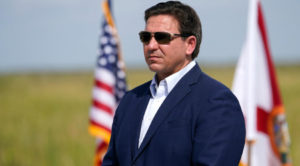In a new legal endeavor to uphold the constitutional sanctity of elections, Judicial Watch has initiated a lawsuit against Mississippi on behalf of the state’s Libertarian Party, challenging the acceptance and counting of ballots days after Election Day. The lawsuit, titled “Libertarian Party of Mississippi v Wetzel et al.,” contends that the allowance of ballots up to five business days after Election Day violates federal law and encroaches on civil rights, thereby constituting a civil rights lawsuit. Judicial Watch argues that counting untimely, illegal, and invalid votes dilutes the weight of votes cast in support of specific nominees.
Mississippi reportedly received up to 1.7% of its 2020 votes after the designated Election Day, prompting Judicial Watch to highlight the Electoral Count Reform Act (“ECRA”) recently enacted by Congress. According to Judicial Watch, the ECRA reiterates the existence of a single, uniform national Election Day, which cannot be extended without the justification of “force majeure events that are extraordinary and catastrophic.” The lawsuit asserts that no such events occurred in Mississippi in 2020.
Judicial Watch draws attention to Mississippi’s extension of Election Day by permitting an additional five business days for the receipt of absentee ballots, a move deemed illegal and violative of voters’ civil rights. The lawsuit stresses the need for adherence to the law, emphasizing that the nation requires an ‘Election Day,’ not an ‘Election Week.’
Judicial Watch has been actively involved in initiatives to ensure honest and secure elections. In 2022, the organization sued Illinois for accepting vote-by-mail ballots without postmarks, bearing dates on or before Election Day, and counted up to 14 days after the election. Judicial Watch has also issued notice letters to election officials in the District of Columbia, California, and Illinois, citing violations of the National Voter Registration Act (NVRA) by failing to remove inactive voters from registration rolls. These efforts reflect the organization’s commitment to safeguarding election integrity in the face of evolving challenges and potential influences.





